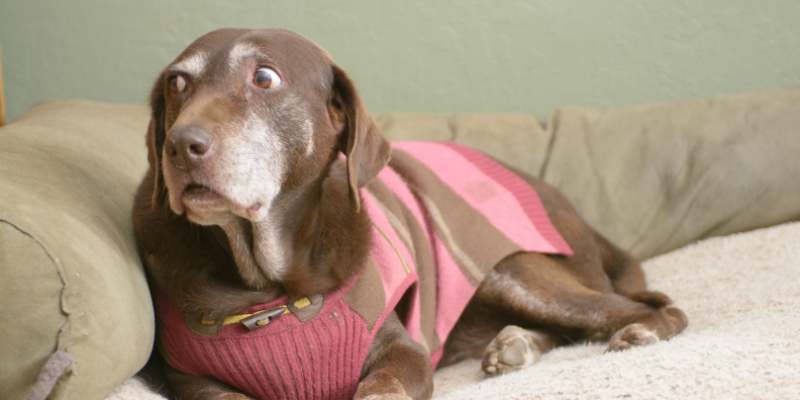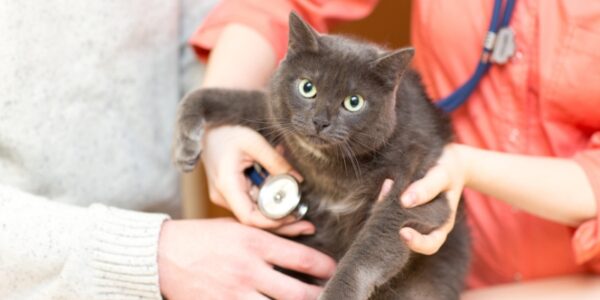
Nervous nellies: pet anxiety explained
Is your pet a bit of a “nervous nellie”? Pet anxiety can be a worrying issue for pet owners, not to mention the pets themselves!
Anxiety may be situation-specific (such as when the pet visits unfamiliar environments or the veterinary clinic), or can be a generalised issue. Read on to learn more about anxiety in dogs and cats, and how our team can help!
Symptoms of anxiety
Pets with anxiety may:
- Show a crouched body posture, with a tucked tail and ears
- Pace around or act restless
- Be hypervigilant or “jumpy”
- Pant excessively (dogs)
- Tremble
- Vocalise
- Salivate excessively
- Hide or be evasive
- Drink or eat less
- Groom excessively (more common in cats)
- Show inappropriate toileting behaviours
- Lash out with aggressive behaviours if pushed too far out of their comfort zone
Unfortunately, if ignored or treated incorrectly (e.g with punishment), anxiety tends to progress and worsen over time.
Why are some pets anxious?
Pets can develop anxiety for several reasons.
Firstly, some pets may simply be born with a more “anxiety-prone” disposition. This can be due to general breed-related factors (with some breeds being more prone to “highly-strung” behaviour) but is also influenced by a pet’s unique genetics, as fearfulness is a moderately heritable trait from parents to offspring.
Pets can also develop fears or anxiety due to a lack of appropriate early socialisation in their peak socialisation period (around 6-16 weeks old). This may involve a lack of positive handling or a lack of positive exposure to a variety of unfamiliar people, animals, or situations, meaning the pet never habituates and becomes comfortable with these experiences.
Lastly, traumatic events in a pet’s life can also result in fears or phobias – this can involve repeated exposure to a negative situation or one highly traumatic event (e.g. severe or painful illness or injury, requiring intensive veterinary hospitalisation and treatment).
How can we help pets with anxiety?
If you suspect your pet to be suffering from anxiety, the best course of action is to book a behavioural consultation with one of our knowledgeable veterinarians. During this consultation, we will take a detailed history of the pet and perform a thorough physical examination (which may also involve blood and urine tests). This will help us to rule out any other medical issues which could be behind changes in your pet’s behaviour (such as urinary tract disease causing your pet to urinate indoors, or chronic neck pain causing your pet to act evasively or lash out).
If we confirm a diagnosis of anxiety in your pet, our treatment plan will depend on the severity of their issue, and whether their anxiety is situation-specific or generalised. In general, treatment for anxiety may include:
- Short- or long-term anti-anxiety medications, so that your pet feels less fearful on a day-to-day basis
- Positive behavioural modification training, involving various relaxation exercises to “retrain” your pet’s brain to encourage a more calm, confident state in the long-term
- Creating a stable and safe environment for the pet, with predictable routines and no punishment for anxious behaviours
- For more severe cases, referral to a veterinary behavioural specialist
With a little dedication and our veterinary assistance, you can help your nervous nellie blossom into a more cool, calm, and confident canine or kitty!



